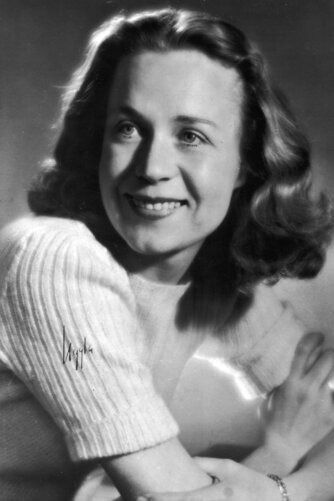Tove Ditlevsen was a Danish author publishing books in the mid-20th century. Her poetry, novels and memoirs made her quite famous within her country and she's now accepted as part of the literary canon in Danish primary schools. However, she's little known in the English speaking world because few of her works have been translated until now. Penguin Classics have just released three memoirs concerning her early life grouped together under the title “The Copenhagen Trilogy”. The first book in this series “Childhood” concerns Ditlevsen's earliest memories and follows her childhood being raised in a working class family up until her confirmation. I was immediately struck by the powerful frankness of her prose style and was deeply sympathetic towards her as she felt like she was born out of place: “I feel like I'm a foreigner in this world”.
Ditlevsen movingly describes a feeling of loneliness in her childhood as well as a powerful drive to read and write – which were activities strongly discouraged for little girls within her community. When she expresses her desire to write her father bluntly tells her “A girl can’t be a poet.” Writing soon becomes a hidden activity which she practices keeping secret notebooks. In a way, it's amazing that she takes up this frowned-upon vocation especially because she wasn't taught about any prominent female authors so had no role models or precedent to follow. Neither was she encouraged to write during her education. Apparently her only inspirations were hymns she read and “a wonderful edition of Grimm’s Fairy Tales, without which my childhood would have been gray and dreary and impoverished.” Nevertheless, she resolves quite early on to become a famous writer and uses writing as an outlet to express the rich interior life which those around her don't understand.
This private inner life is something that Ditlevsen grows to take enormous solace in. I admire how she recognizes that her own perspective only represents one side of the story: “I know every person has their own truth just as every child has their own childhood… Fortunately, things are set up so that you can keep quiet about the truths in your heart.” She almost seems to revel in her privacy and writing becomes a way to express herself to unknown friends that she hopes will one day understand her: “I always dream about meeting some mysterious person who will listen to me and understand me.”
It's perhaps not surprising that she takes such refuge in her writing given the limitations placed upon her because of her gender and the physical brutality she received from her mother: “My mother hit me often and hard, but as a rule it was arbitrary and unjust”. It's painful reading about these hardships but Ditlevsen is so upfront and unashamed in writing about her experiences that there's a boldness and survivor's strength to her tale. She also recounts her canniness at hiding her true intelligence amongst people who don't appreciate it and actively try to suppress it. There are times when she describes hiding under a mask of stupidity and how she adjusts her expression to appear dumb.
A hopeful aspect to this memoir is in the figure of her older brother Edvin. Initially he laughs at her literary efforts after discovering her poetry book (which, of course, is crushing for her to hear), but he concedes they are good and he actively tries to help her to get published for the first time. I think this shows how it's natural for someone who feels slighted and mocked to feel defensive, but some people can be surprisingly supportive and encouraging. Ditlevsen also clearly had an innate confidence that she was made for a life much different from the circumstances she was born into. For people like this who feel so out of place childhood can be like a prison or, as Ditlevsen describes it “Childhood is long and narrow like a coffin, and you can’t get out of it on your own.” It's heartening to know that she did, although there are also ominous passages which hint that paired with her bold self-assurance is a drive to self-destruction.
It feels so fortunate that the English speaking world is finally being given access to the self-told story of a writer who is clearly such a talented, distinct and fascinating individual. Her singular perspective reminds me somewhat of the bold but melancholy writing of Jean Rhys or Jane Bowles. I look forward to reading more about Ditlevsen's life in the next two volumes of this memoirist trilogy and I hope to see more of her extensive backlist of books translated in the future.










